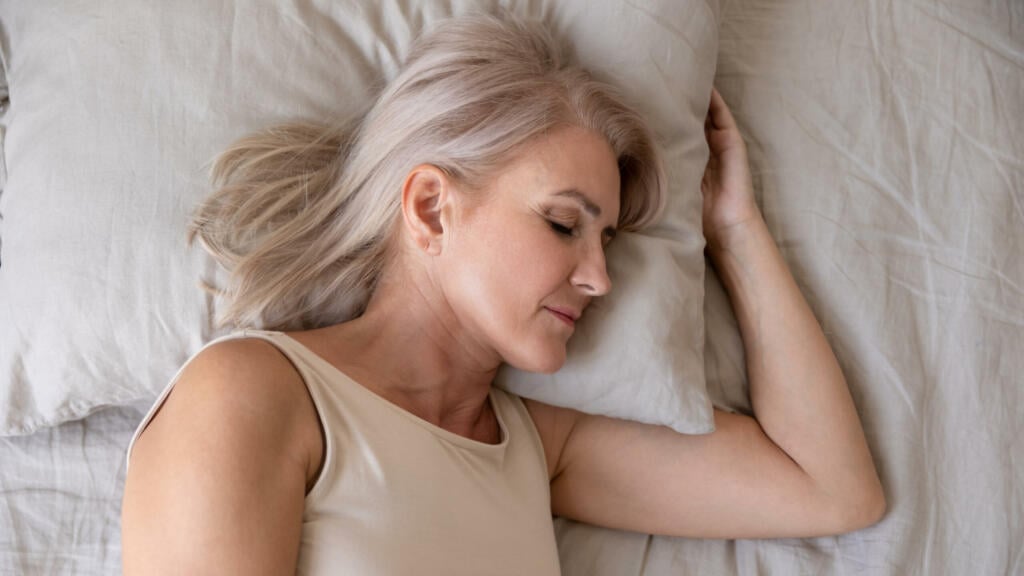
10 sleep truths from the experts
Rebecca Frew
Sort out your sleeping patterns and bedroom hygiene – and drift off in no time.
Getting a good night’s sleep is not just great for your physical and mental wellbeing – it could even add years to your life, according to a recent study by the American College of Cardiology.
So what about when sleep eludes you, and you spend restless nights wide awake? Insomnia can happen for any number of reasons: stress, diet, alcohol, poor sleeping environment, too much stimulation before bed – they can all stop your body clock from working efficiently. There’s a reason why sleep aids are such big business.
Getting a good night’s sleep is not just great for your physical and mental wellbeing – it could even add years to your life, according to a recent study by the American College of Cardiology.
So what about when sleep eludes you, and you spend restless nights wide awake? Insomnia can happen for any number of reasons: stress, diet, alcohol, poor sleeping environment, too much stimulation before bed – they can all stop your body clock from working efficiently. There’s a reason why sleep aids are such big business.

Many of us find we get more aches and pains than we used to, while breathing issues can cause snoring and disrupted sleep. For women, the menopause may be accompanied by night sweats that leave them sleep-deprived, compounding other menopausal symptoms.
This is why your sleep hygiene is so vital.
Sleep hygiene refers to all the healthy behaviours you need to adopt to ensure you maximise your chances of a great night’s sleep. As Kate Mikhail, author of Teach Yourself To Sleep – An Ex-Insomniac’s Guide, explains, it’s easier to correct than you might think.
“It’s all about establishing new and desirable sleep habits in the countdown to sleep and the bedroom,” says Mikhail. “If you can do that, you can take back control of your sleep regime.”
While it goes without saying that having a good quality mattress and pillow is important to a sound night’s sleep, also consider the wider environment of your bedroom. That means ensuring the room where you sleep is as dark as possible and, if need be, using an eye mask to keep out any residual light.
Your room should also be cool rather than cold, with the ideal temperature being 15-19C (60-66F).
When your room is ready, think about using some sleep-promoting scents too. “The neuroscience of scent has proven that sprinkling lavender or ylang-ylang essential oil on your pillow or in a diffuser gets measurable results in improving sleep quality,” adds Mikhail.
Difficulty: Low

One of the most common reasons for insomnia is stress. When you’re suffering with stress, the body produces more of the hormone cortisol. This suppresses melatonin, the hormone that helps ease you in to sleep. Proactive stress management can make a real difference in reducing cortisol and making it easier to drop off.
The key is in the breathing. “One simple tactic is to take a few deep breaths,” explains Mikhail. “We tend to fall into shallow breathing as we go about our day, and shallow breaths go hand in hand with stress. But, by contrast, by breathing deeply, you activate the parasympathetic nervous system, which calms and relaxes you, helping you to unwind at night before sleep.”
Going for a walk, taking some exercise or even getting lost in a book will also help you to de-stress before bed.
Difficulty: Low-medium
Everyone loves a nap, right? If they’re taken at the right time of day and for the right amount of time, naps are the perfect fillip for those times when you’re flagging. But when it comes to power naps, Mikhail explains, timing is all-important.
“Napping late in the day disrupts the circadian rhythm by weakening your sleep pressure – that’s something that builds up the longer you’re awake so that you’re tired and ready for sleep at night,” she says.
“Naps later in the day simply don’t give the body sufficient time to build up the sleep pressure it needs to fall asleep easily, which can leave you wide awake when you do go to bed.”
Difficulty: Low
While many people enjoy a nightcap, often to counteract the stress of the day, it’s not the best route to a good night’s sleep. Like sleeping tablets, alcohol acts as a sedative – meaning you might get to sleep more quickly, but it won’t, however, promote deeper, more natural sleep.
Alcohol is also a diuretic, meaning you’ll need more trips to the loo during the night, fragmenting your sleep still further.
“Everyone has different alcohol tolerance levels, but a good rule of thumb is to drink in moderation earlier in the evening, or have a night off for optimum sleep,” says Mikhail.
Difficulty: Low
While electronic devices like mobile phones, laptops and tablets have revolutionised our daily lives, they are one of sleep’s biggest enemies. They emit blue light through their screens, which your brain can perceive as being similar to sunlight. By exposing yourself to blue light in the evening, your body will cease to produce the melatonin it needs to promote sleep, tricking your brain into believing you should still be awake.
If you must use a device in the evening, try using a night filter or a pair of blue-light blocking glasses.
Difficulty: Low-medium
Written by Gavin Newsham
Published: Updated:
Gavin Newsham is an award-winning writer whose work on health and wellbeing regularly appears in titles such as The Telegraph, The New York Post and The Guardian. He has also written on the science of sleep for a range of publications and websites, including Live Science, Tom’s Guide and Yahoo Life.